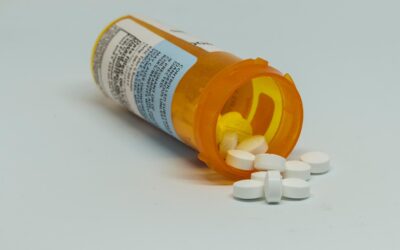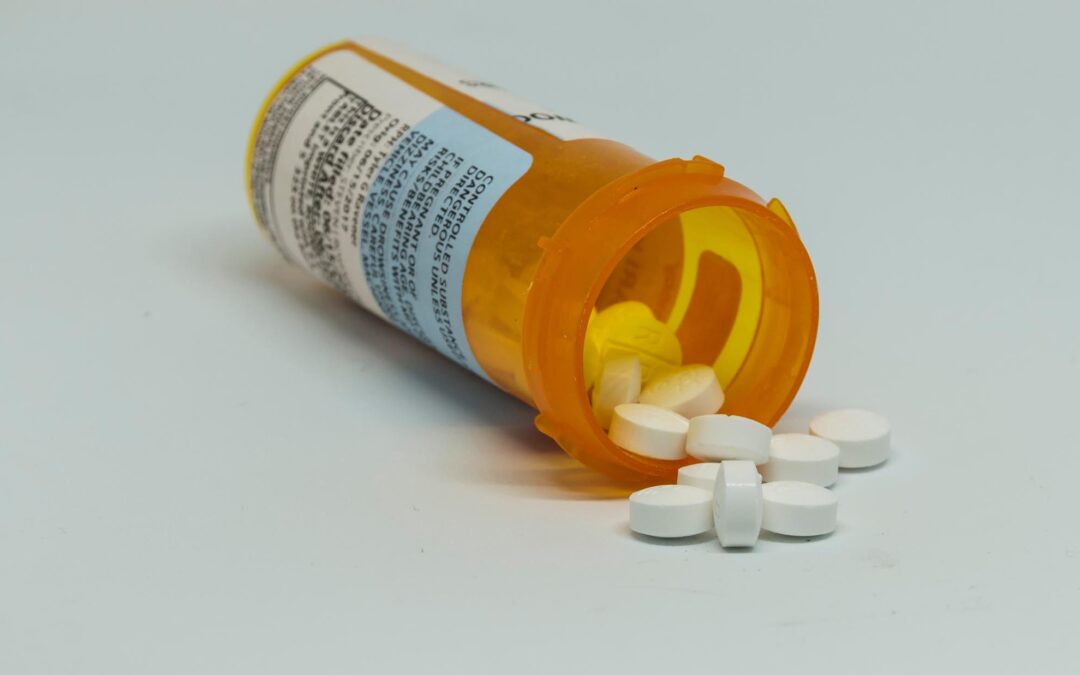Adderall and College Students: The pressure to excel academically has driven many college students to seek performance enhancement through prescription stimulants like Adderall. This growing trend reflects a concerning reality: students feel compelled to push beyond their natural capabilities to meet increasingly demanding academic expectations.
You’ll find Adderall use widespread across college campuses, with students using it as a study aid to:
- Pull all-nighters before exams
- Maintain focus during intense study sessions
- Manage heavy course loads
- Keep up with competitive peer environments
The risks associated with non-prescribed Adderall use extend far beyond academic consequences. Students who turn to this stimulant often underestimate its powerful addictive properties and potential health impacts. What starts as an occasional “study boost” can quickly spiral into physical dependence and psychological addiction.
Understanding these risks becomes crucial as the academic pressure continues to mount. Your awareness of Adderall’s dangers could make the difference between choosing healthy study habits or falling into the trap of substance dependence.
The Rise of Adderall Use in College
Adderall, a prescription medication combining amphetamine and dextroamphetamine, serves as a vital treatment for individuals diagnosed with Attention Deficit Hyperactivity Disorder (ADHD). The medication works by increasing dopamine and norepinephrine levels in the brain, helping patients maintain focus, control impulses, and manage behavioral challenges.
Recent studies reveal a concerning trend: 20-30% of college students report using Adderall without a prescription. This statistic translates to approximately one in four students turning to these “study drugs” during their academic career.
Why Are Students Using Adderall?
The surge in non-prescribed Adderall use stems from several key factors:
- Academic Performance Pressure: Students face competitive GPAs for graduate school applications, heavy course loads, demanding internship requirements, and pressure to maintain scholarships.
- Social and Personal Challenges: Many students fear falling behind peers, experience social anxiety and peer pressure, desire weight management, or need to balance work and studies.
How Do Students View Adderall?
Students often perceive Adderall as a “smart drug,” believing it enhances cognitive performance and provides an academic edge. The medication’s availability through peer networks makes it easily accessible on college campuses, with students sharing or selling their prescribed medications.
When Are Students Most Likely to Use Adderall?
Research indicates peak usage during high-stress academic periods, such as midterms and finals weeks. A study by the National Institute on Drug Abuse found that full-time college students are twice as likely to use Adderall non-medically compared to their non-student peers.
Understanding the Risks: Health, Legal, and Addiction Concerns
Students seeking a competitive edge through Adderall often experience temporary benefits that can mask the drug’s serious risks. Many users report enhanced focus, increased productivity, and appetite suppression leading to weight loss. These short-term effects create an illusion of academic advantage.
Health Risks of Non-Prescribed Adderall Use
The health risks of non-prescribed Adderall use are severe and can include:
- Cardiovascular Issues: Irregular heartbeat, high blood pressure, risk of heart attack
- Mental Health Impact: Severe anxiety, depression, panic attacks
- Physical Symptoms: Chronic insomnia, excessive sweating, dangerous weight loss, tremors
For a more detailed understanding of the Adderall side effects, it’s crucial to consider these health implications seriously.
Legal Implications of Misusing Adderall
The legal implications of misusing Adderall are equally serious. As a Schedule II controlled substance, unauthorized possession can result in:
- Felony charges
- Potential jail time
- Heavy fines up to $10,000
- Academic disciplinary action
- Permanent criminal record
Immediate Risk to Your Academic Career
Your academic career faces immediate risk if caught with non-prescribed Adderall. Universities implement strict policies against stimulant abuse, often resulting in suspension or expulsion. These consequences can derail your educational path and future career prospects.
Addiction Risks with Prolonged Use
The addiction risks intensify with prolonged use. Your brain adapts to Adderall’s presence, requiring increasing doses to achieve the same effects. This tolerance builds rapidly, creating a dangerous cycle of dependence. Students who start using Adderall as a study aid often find themselves unable to focus or function without it.
Withdrawal Symptoms After Stopping Adderall
Physical dependence develops alongside psychological reliance. When you stop taking Adderall, withdrawal symptoms can include:
- Extreme fatigue
- Difficulty concentrating
- Depression
- Increased appetite
- Sleep disturbances
These withdrawal effects can persist for weeks, making it challenging to maintain academic performance and daily responsibilities.
In addition to these health risks associated with Adderall misuse, there are also significant health and behavioral risks of alcohol and drug use that students should be aware of.
Recognizing and Treating Adderall Addiction
Identifying Adderall addiction requires understanding specific behavioral and physical warning signs. You might notice these red flags in yourself or someone you care about:
Key Warning Signs:
- Building tolerance – needing higher doses to achieve the same effects
- Taking more pills than prescribed or intended
- Failed attempts to cut back or stop using
- Spending significant time obtaining, using, or recovering from Adderall
- Neglecting responsibilities at work, school, or home
- Continuing use despite negative consequences
- Experiencing withdrawal symptoms like depression, fatigue, or intense cravings
Physical Symptoms:
- Irregular heartbeat
- Severe weight loss
- Changes in sleeping patterns
- Frequent headaches
- Unexplained anxiety or paranoia
Treatment for Adderall addiction typically involves a multi-faceted approach. At Advanced Addiction Center in Medford, Massachusetts, we offer several evidence-based treatment options:
Treatment Programs:
- Outpatient therapy with flexible scheduling
- Intensive Outpatient Program (IOP) featuring structured group sessions
- Dual diagnosis treatment addressing both addiction and mental health
- Day programs incorporating holistic healing methods
- Evening programs allowing home-based recovery
Professional treatment combines behavioral therapy, counseling, and support groups. Cognitive Behavioral Therapy (CBT) helps identify triggers and develop healthy coping mechanisms. Group therapy provides peer support and shared experiences, while individual counseling addresses personal challenges and underlying issues contributing to addiction.
It’s also important to recognize that [codependency in addiction](https://advancedaddictioncenter.com/addiction/codependency-in-addiction) can hinder recovery. Codependent behaviors often enable substance abuse, making it crucial to address these relationship dynamics during the treatment process.
Medical supervision during the withdrawal process ensures safety and comfort. Healthcare providers can help manage symptoms and prevent complications, making the recovery journey more manageable. If you or a loved one is struggling with Adderall addiction, don’t hesitate to contact us at Advanced Addiction Center. Taking that first step toward overcoming addiction can be transformative.
Promoting Healthy Coping Mechanisms in a High-Pressure Academic Environment
Parents and educators play a crucial role in shaping how students deal with academic challenges. By actively participating in preventing stimulant abuse, they create a supportive environment where students feel comfortable discussing their difficulties without resorting to substances.
Key Prevention Strategies for Parents and Educators:
- Create regular check-ins with students about their academic workload
- Help students develop realistic expectations about grades and performance
- Teach time management skills and study techniques
- Recognize signs of academic burnout
- Connect students with mental health resources
Healthy Alternatives to Combat Academic Pressure:
- Physical Activity: Regular exercise reduces stress and improves focus
- Study Groups: Collaborative learning environments provide support and accountability
- Mindfulness Practices: Meditation and breathing exercises enhance concentration
- Sleep Hygiene: Maintaining consistent sleep schedules improves cognitive function
- Academic Support Services: Utilizing tutoring and writing centers
Educational institutions can implement stress-reduction programs and workshops focusing on natural methods to enhance academic performance. These programs should emphasize the development of sustainable study habits and stress management techniques.
Students benefit from learning to break large assignments into manageable tasks, setting boundaries around study time, and practicing self-care. These skills build resilience and create a foundation for long-term academic success without relying on stimulants.
The role of academic advisors extends beyond course selection – they can guide students toward campus resources and support services when academic pressures become overwhelming.
The allure of Adderall’s quick-fix promises masks its devastating long-term impact on your physical and mental well-being. True academic success stems from sustainable study habits, proper self-care, and a balanced lifestyle – not from a pill.
If you’re struggling with Adderall dependence, know that help is available. Advanced Addiction Center in Medford offers comprehensive treatment programs tailored to your needs, including flexible outpatient options and dual diagnosis support. Call (781) 560-6067 to speak with our experienced team.
Your life and well-being matter more than any grade or academic achievement. Take the first step toward recovery today. Your future self will thank you for choosing health over temporary performance gains.








